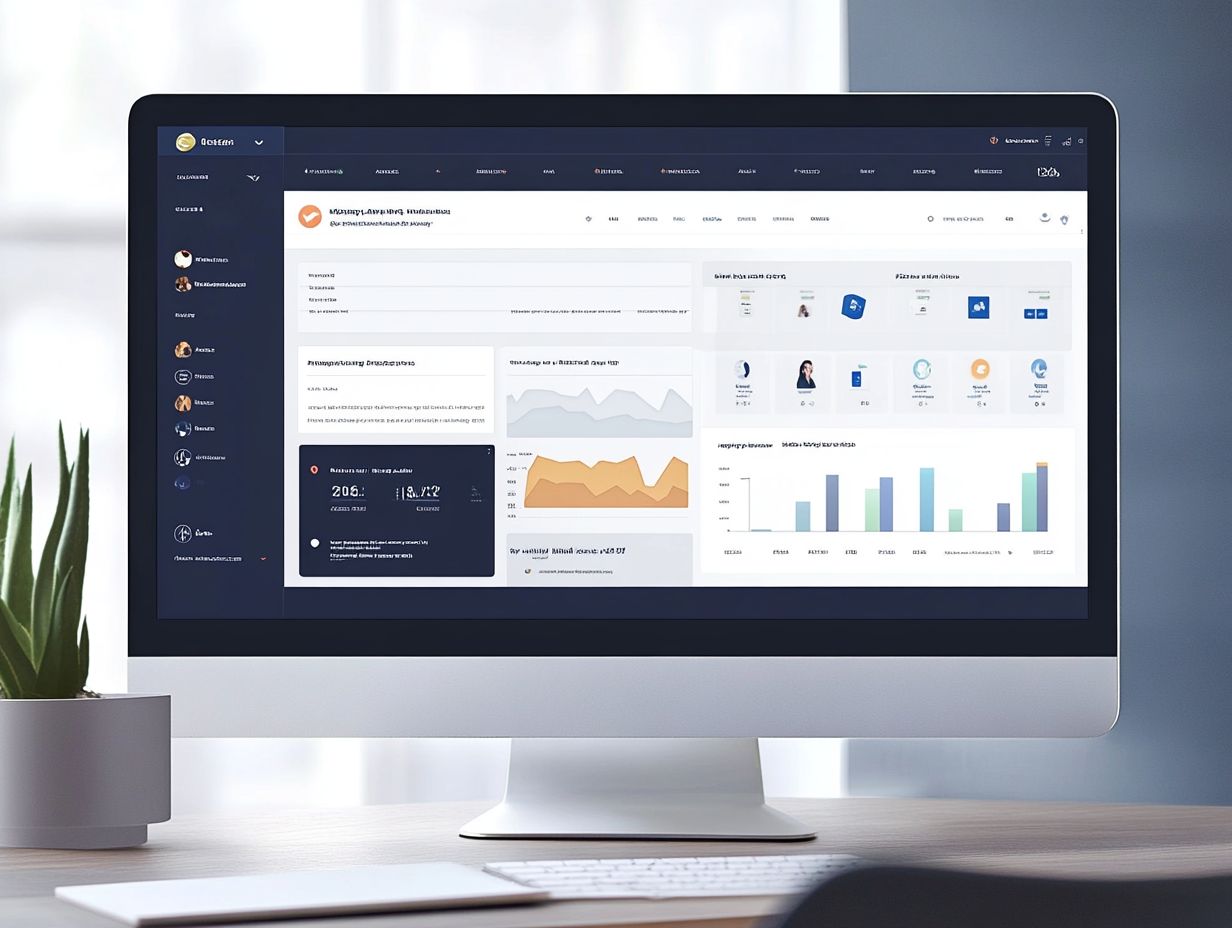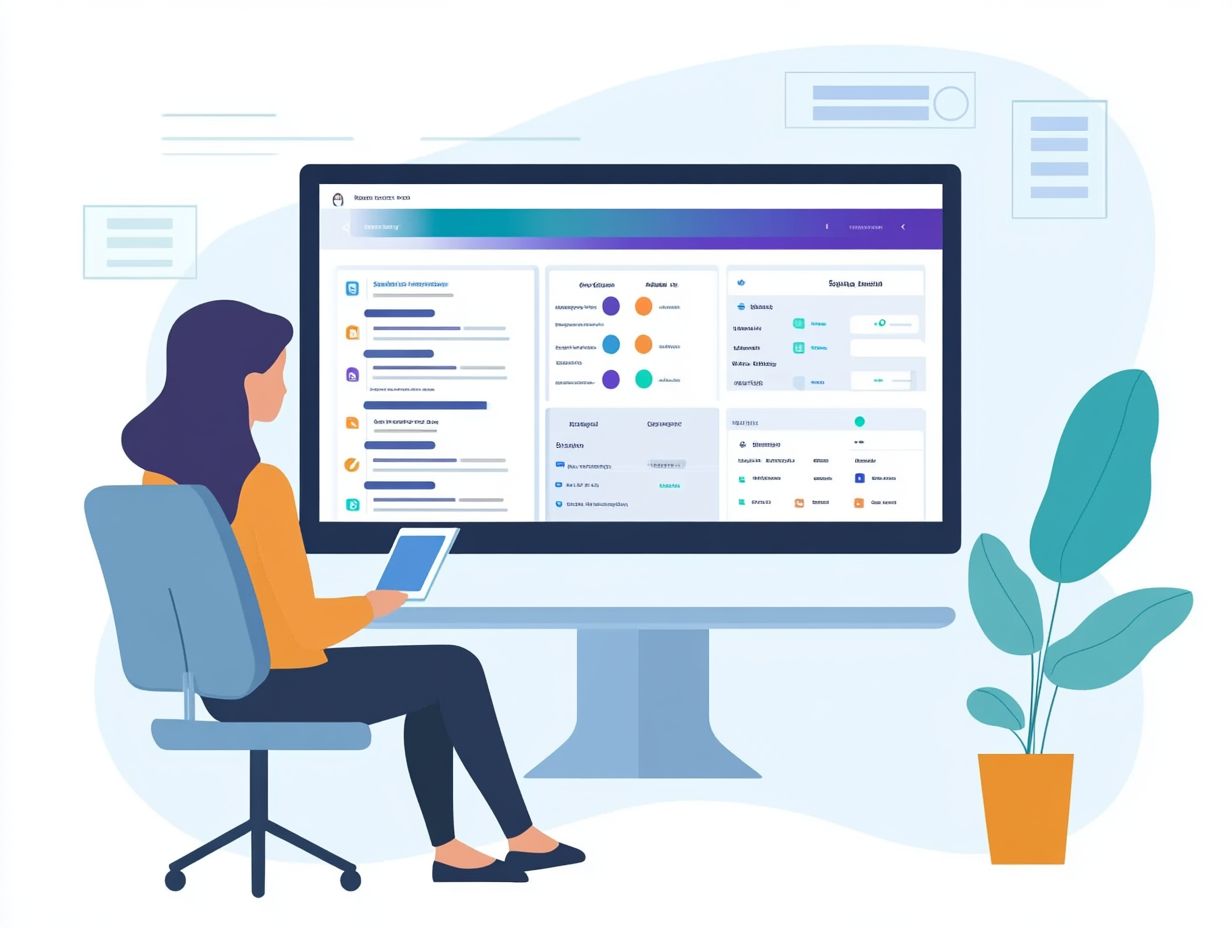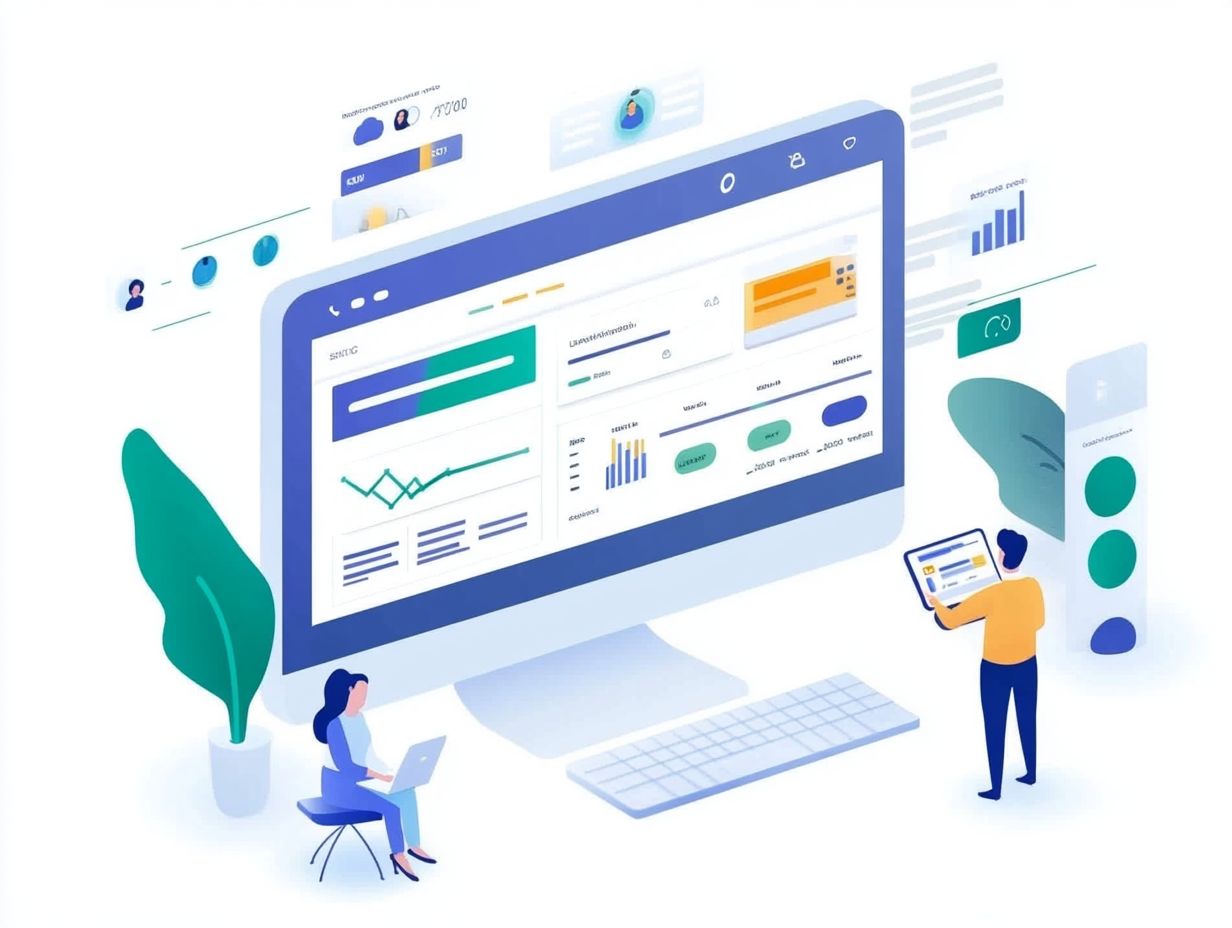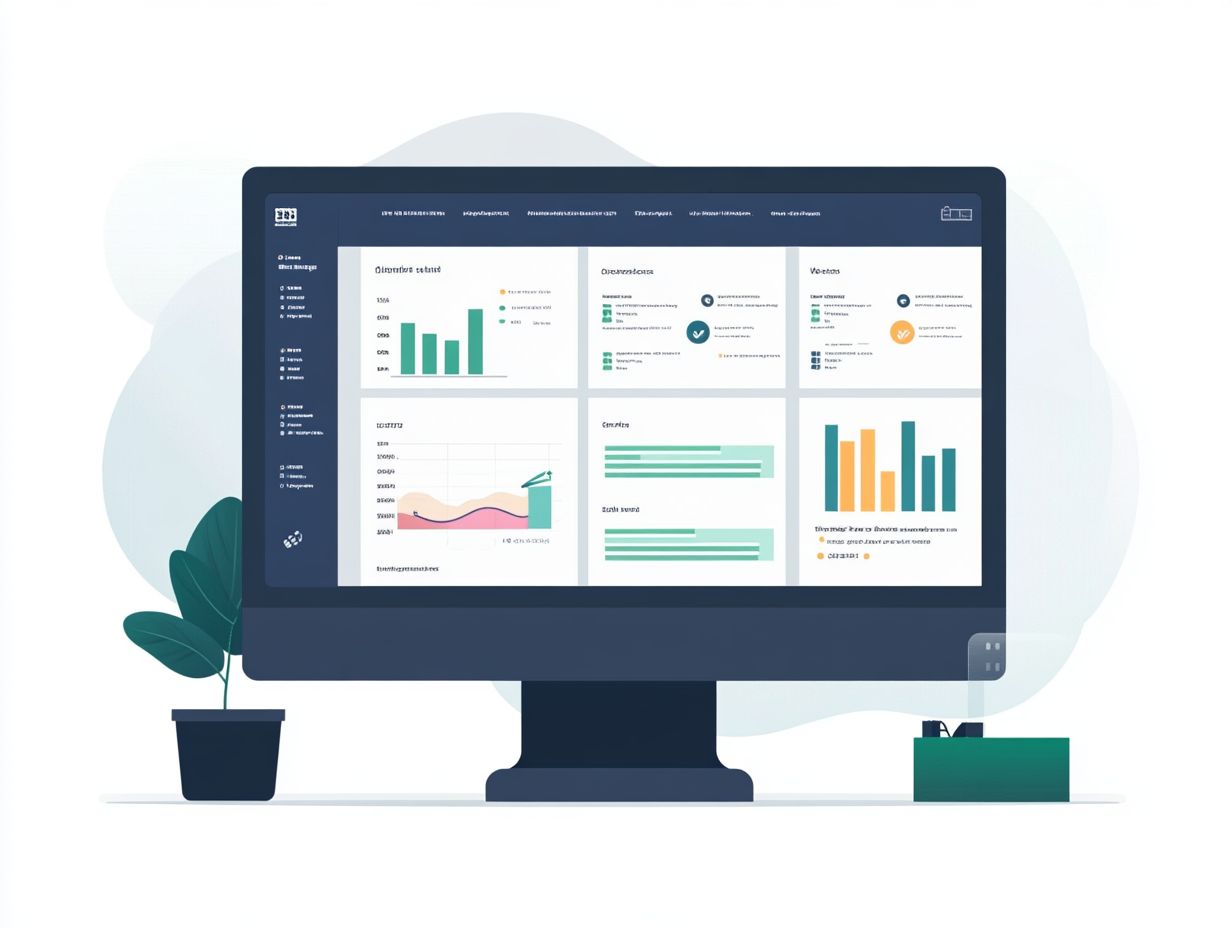What Are Common CRM Software Tools?
In today’s fast-paced business landscape, mastering effective customer relationship management (CRM) is essential for your success.
With CRM software tools at your disposal, you can streamline processes, enhance customer interactions, and significantly boost your sales.
This article delves into the various types of CRM software, ranging from on-premise solutions to cloud-based options, while highlighting key features that can elevate your customer engagement strategies.
You will learn how to choose the right tool tailored to your specific needs, along with the importance of seamlessly integrating CRM with other essential software.
Join us on this exciting journey through CRM and uncover its pivotal role in shaping modern business success.
Contents
Key Takeaways:

CRM software helps you manage customer relationships and interactions, making your sales and marketing processes smoother.
CRM software can be on-premise or cloud-based and may offer industry-specific solutions.
Key features include contact management, sales and marketing automation, and customer service and support.
When choosing a CRM software tool, consider factors such as cost, scalability, user-friendliness, and integration capabilities with other tools for increased efficiency and productivity.
What is CRM Software?
CRM software, or Customer Relationship Management software, is an essential tool designed to streamline, manage, and analyze your customer interactions from the first contact to ongoing support.
By leveraging automation, analytics, and reporting dashboards, you can enhance your customer relationships, improve user experience, and optimize your marketing strategies with precision.
This user-friendly platform caters to both small businesses and enterprises, enabling you to track every phase of the customer journey from keeping track of potential customers to customer care ultimately driving growth and ensuring long-term success.
The significance of CRM software is immense, as it organizes contact details and serves as a pivotal hub for communication.
With key features like contact management and workflow automation, you can craft targeted marketing campaigns and deliver personalized service that significantly enhances the customer experience.
Tools like Zoho CRM, HubSpot, and Salesforce offer unique functionalities tailored to your specific business needs, making collaboration seamless and enabling your team to respond swiftly to customer inquiries.
In this ever-evolving marketplace, harnessing CRM capabilities now can set the stage for deeper customer loyalty and satisfaction.
Types of CRM Software Tools
When you delve into CRM software tools, it s crucial to recognize that these solutions come in various types, each meticulously designed to address specific business needs and sizes.
Options like Zoho, Freshsales, HubSpot, and Salesforce each offer unique features that cater to different organizational requirements.
Selecting the right tool can profoundly influence your company’s efficiency and effectiveness in managing customer relationships, lead management, and sales forecasting.
Your choice here is a strategic move that can elevate your business to new heights.
Ready to transform your customer relationships? Explore CRM options today!
On-Premise vs. Cloud-Based

You have two primary deployment options for CRM software: on-premise and cloud-based solutions. Each option presents unique advantages and challenges for your business.
On-premise solutions give you better control and customization over your data. In contrast, cloud-based options offer flexibility and easy integration with other platforms, wrapped in a user-friendly interface that enhances your overall experience.
When considering the total cost of ownership, weigh the upfront costs against long-term expenses. On-premise solutions often require a hefty initial investment in hardware and maintenance, which can add up quickly.
Cloud-based offerings typically feature subscription pricing plans that can scale with your organization, potentially making them more budget-friendly over time.
Security is a significant factor you can’t overlook. On-premise systems allow for better control of sensitive information, while cloud-based systems often come with advanced security measures and regular updates that may outperform some in-house solutions.
Ease of accessibility is crucial. Cloud-based CRM enables you to access your data anytime and anywhere, promoting greater collaboration among your teams.
Industry-Specific Solutions
Industry-specific CRM software solutions are crafted to meet the unique needs of various sectors. They offer tailored features that improve customer service and streamline operations.
For example, in the healthcare sector, CRM software can integrate patient management systems with advanced analytics. This allows you to segment patients based on their medical history and promote personalized care approaches.
In retail, CRM tools help you analyze client data effectively. This enables you to tailor marketing strategies and refine customer care by gaining deeper insights into purchasing behavior.
In finance, these custom systems ensure compliance with regulations while delivering exceptional client interactions through comprehensive data insights. This allows you to meet each client s needs efficiently and accurately.
Key Features of CRM Software
The key features of CRM software are essential for any business aiming to elevate customer interactions and streamline operations.
With capabilities like contact management, sales and marketing automation, and comprehensive customer service and support, you can completely transform your interactions with clients!
By utilizing these functions, your organization can enhance user experience and nurture strong customer relationships throughout the sales pipeline.
Contact Management

Contact management is a key feature of CRM software that helps you organize and manage client data efficiently. This leads to stronger client relationships and interactions.
A user-friendly platform improves your ability to track client information, communicate effectively, and nurture leads throughout the sales process. It goes beyond mere organization; it enables you to use simple methods to score leads, prioritizing prospects based on their engagement and potential value.
This strategic approach elevates your email campaigns by targeting specific segments. It also ensures that your follow-ups are timely and relevant. When integrated with other applications, like marketing automation tools, contact management becomes vital in optimizing your customer relationship strategies, ultimately increasing satisfaction and loyalty.
A well-structured system can transform chaotic data into meaningful insights, driving growth and delivering exceptional user experiences.
Sales and Marketing Automation
Sales and marketing automation features in CRM software enable you to streamline processes, manage leads, and execute targeted marketing campaigns with precision.
By automating routine tasks and workflows, you can focus on strategic initiatives. This ensures that your leads are nurtured through the sales funnel with maximum efficiency.
These tools not only boost your team’s productivity but also greatly improve customer experience by facilitating timely and personalized communications.
With strong email tracking, you can monitor engagement levels, allowing you to tailor your messages to fit individual preferences seamlessly.
An advanced reporting dashboard provides valuable insights into lead management and campaign analysis, equipping you with the data needed to refine your strategies effectively.
Integrated advanced analytics further enables you to predict customer behavior, empowering you to make data-driven decisions that optimize performance and drive sales growth.
Customer Service and Support
Customer service and support functionalities within CRM software are essential for delivering exceptional customer experiences and nurturing strong relationships.
By integrating support tools, you can ensure timely responses and track customer inquiries. This fosters loyalty and satisfaction among your clientele.
In today s fast-paced marketplace, efficient communication channels are vital. CRM solutions offer ticketing systems, which are tools that help track and manage customer support requests, streamlining the process of addressing customer concerns.
The inclusion of comprehensive knowledge bases enables your customers to find solutions independently, enhancing their experience while lightening the load on your support teams.
By soliciting and analyzing customer feedback within these platforms, you can identify areas for improvement, ensuring your services remain user-friendly and tailored to meet evolving needs.
Choosing the Right CRM Software Tool

Selecting the right CRM software tool is a crucial decision. It demands thoughtful consideration of several factors, such as user experience, features, pricing plans, and your unique business needs.
By thoroughly evaluating these elements, you can confidently choose a solution that aligns with your goals and elevates your customer relationships. Don’t wait! The right CRM can transform your business.
Considerations and Factors to Evaluate
When evaluating CRM software, consider several critical factors that directly influence your efficiency and effectiveness, such as pricing, user experience, and feature set.
Understanding these elements is essential for making informed decisions that align with your organizational goals and enhance customer relationships.
Explore customer segmentation capabilities, which enable you to craft tailored marketing strategies that resonate with specific audience demographics.
Taking advantage of trial options allows you to experience the software firsthand. Assess its intuitiveness and flexibility before making any financial commitments.
Integrating CRM systems with your existing tools can streamline operations, ensuring a seamless workflow that enables your team to serve clients more effectively.
Each of these factors plays a pivotal role in shaping a comprehensive understanding of how well the CRM will meet your unique needs, ultimately guiding your journey toward improved sales and heightened customer satisfaction.
Integrating CRM Software with Other Tools
Integrating CRM software with other tools and platforms can significantly elevate your business operations. This integration facilitates seamless data flow, enhances automation analytics, and optimizes customer interactions.
By embracing these integrations, you can enjoy a host of benefits, including increased efficiency, improved data management, and a more holistic view of your customer relationships.
Common Integrations and Benefits
Common integrations for CRM software include tools for email marketing, project management, and customer service. Each delivers substantial benefits that elevate your overall business performance.
By harnessing these integrations, you unlock a powerful centralized reporting dashboard and automate workflows. This ultimately enriches the user experience and enhances customer service.
Integrating email marketing platforms allows seamless communication with your clients. This simplifies engagement tracking and empowers you to tailor campaigns based on customer behavior.
Project management tools help your teams manage deals effectively. This ensures all stakeholders are in the loop with the latest updates and timelines.
Customer service integrations enable your support teams to respond promptly to inquiries, nurturing stronger customer relationships.
With visual dashboards, you gain a comprehensive view of your performance metrics. This enables you to identify areas for improvement and make data-driven decisions that drive growth.
Frequently Asked Questions
What Are Common CRM Software Tools?
Common CRM software tools are systems that help businesses manage and analyze customer interactions and data throughout the customer lifecycle. These tools can include features such as contact management, sales tracking, marketing automation, and customer service management.
What are some popular CRM software tools?
Some popular CRM software tools include Salesforce, HubSpot, Microsoft Dynamics 365, Zoho CRM, and Pipedrive. To make the most of these tools, it’s important to understand what features CRM software should have, as they offer a range of capabilities and integrations to help businesses improve their customer relationships and sales processes.
How do I choose the right CRM software tool for my business?
When choosing a CRM software tool, consider your business’s specific needs and goals. Factors to consider include the size of your business, budget, desired features, and integration capabilities.
Are there free CRM software tools available?
Yes, several free CRM software tools are available, such as HubSpot CRM, Zoho CRM, and SuiteCRM. These tools offer basic features and are a good option for businesses on a tight budget.
Do CRM software tools integrate with other business systems?
Yes, many CRM software tools offer integrations with other business systems such as email marketing, accounting, and project management. This allows for a seamless flow of information and communication between different departments and systems within a business.
Can multiple users access a CRM software tool?
Yes, most CRM software tools offer multi-user access with different levels of permissions and restrictions. This allows for collaboration and efficient management of customer data and interactions among team members.
Act now to explore your CRM options and transform your customer relationships!






